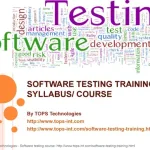Welcome to your detailed guide on the Police Constable Syllabus! If you’re aspiring to join the police force, understanding the syllabus thoroughly is your first step towards a successful career in law enforcement. This guide aims to clarify the structure and content of the course, equipping you with the knowledge needed to excel in your studies and forthcoming examinations.
Introduction to the Syllabus
The Police Constable syllabus is designed to prepare candidates for the diverse and challenging role of a police constable. This syllabus covers a broad range of topics that provide foundational knowledge and practical skills crucial for law enforcement duties. The course’s primary objective is to ensure that all recruits are well-versed in legal statutes, ethical policing, community engagement, and physical readiness.
Syllabus Breakdown for the Current Academic Year
The syllabus for this year is divided into several key units, each focusing on different essential aspects of policing:
Unit 1: Law and Ethics
-
Topics Covered:
-
Basics of Criminal Law
-
Ethics in Policing
-
Civil Rights
-
-
Learning Outcomes:
-
Understand legal frameworks and ethical considerations.
-
Apply ethical reasoning to real-world policing situations.
-
Unit 2: Community Policing
-
Topics Covered:
-
Engagement Strategies
-
Conflict Resolution
-
Community Outreach Programs
-
-
Learning Outcomes:
-
Develop skills in building community trust and cooperation.
-
Resolve conflicts through communication and understanding.
-
Unit 3: Crime Investigation Techniques
-
Topics Covered:
-
Crime Scene Management
-
Evidence Collection and Analysis
-
Interviewing Witnesses
-
-
Learning Outcomes:
-
Conduct thorough investigations and collect evidence effectively.
-
Utilize forensic science in solving crimes.
-
Unit 4: Physical Training and Tactical Preparation
-
Topics Covered:
-
Physical Fitness Regimes
-
Defensive Tactics
-
Firearms Training
-
-
Learning Outcomes:
-
Achieve physical readiness required for the demanding nature of police work.
-
Employ defensive tactics safely and effectively.
-
Examination Patterns
-
Types of Questions: Multiple Choice Questions (MCQs), Long Answer, and Short Answer questions.
-
Marks Distribution: Each unit has an equal weightage with a focus on practical knowledge application.
-
Assessment: Continuous assessment through quizzes, written exams, and physical tests.
Recommended Study Materials
Candidates are encouraged to consult the following resources:
-
Books:
-
“Introduction to Policing” by John S. Dempsey
-
“Ethics in Law Enforcement” by Steve McCartney and Rick Parent
-
-
Online Resources:
-
Local Police Department’s official website for updated statutes and case studies.
-
Online courses on crime scene investigation techniques.
-
Tips for Staying Organized and Prepared
-
Study Plan: Create a monthly study plan that covers all units equally and allot time for physical training.
-
Practice Exams: Regularly attempt practice exams to familiarize yourself with the question formats and time management.
-
Stay Updated: Follow recent developments in law enforcement techniques and technology.
By following this guide and making use of the provided resources and tips, you’ll be well on your way to excelling in your role as a police constable. Remember, thorough preparation and a proactive approach to learning are key to achieving your goals in this dynamic and rewarding field.
FAQ for Police Constable Syllabus
1. What subjects are covered in the Police Constable syllabus?
-
The syllabus typically includes subjects such as Law and Ethics, Community Policing, Crime Investigation Techniques, and Physical Training and Tactical Preparation.
2. How is the Police Constable exam structured?
-
The exam usually consists of Multiple Choice Questions (MCQs), long-answer, and short-answer questions. It assesses knowledge across all units of the syllabus with a balanced weightage on each section.
3. Are there any recommended books for preparing for the Police Constable exam?
-
Recommended books include “Introduction to Policing” by John S. Dempsey and “Ethics in Law Enforcement” by Steve McCartney and Rick Parent. These provide comprehensive coverage of the necessary topics.
4. How can I improve my physical fitness for the physical training part of the syllabus?
-
Regular exercise, including cardiovascular workouts, strength training, and flexibility exercises, are crucial. Joining a fitness class or hiring a personal trainer can also be beneficial.
5. What skills are emphasized in the Police Constable syllabus?
-
The syllabus emphasizes legal knowledge, ethical decision-making, community engagement, investigative skills, and physical fitness.
6. How often is the Police Constable syllabus updated?
-
The syllabus is reviewed and updated periodically to reflect changes in law, technology, and policing techniques. It’s advisable to check with the relevant policing body for the most current syllabus.
7. Is there any online resource where I can study or practice for the Police Constable exam?
-
Many law enforcement agencies and educational platforms offer online courses and practice tests. These resources are invaluable for understanding examination patterns and practicing under timed conditions.
8. What are the best strategies for preparing for the Police Constable exam?
-
Apart from studying the recommended materials, practicing past exam papers, staying physically active, and keeping up-to-date with new laws and community policing strategies are effective preparation strategies.
9. Can previous work experience in law enforcement help in the exam?
-
Yes, previous experience can provide practical knowledge and insights that are beneficial for the exam, especially in sections like law, ethics, and community policing.
10. How important is community policing in the syllabus? – Community policing is a significant part of the syllabus as it prepares candidates to work effectively within diverse communities, emphasizing skills like communication, empathy, and conflict resolution.
These FAQs should help clarify common queries and aid in effective preparation for aspiring police constables.
Latest Posts
- Step-by-step guide to download and apply for jee mains admit card 202
- Comprehensive 2025 government holidays and recruitment details for job seekers
- JEE Mains Admit Card 2025: Your Step-by-Step Guide to Downloading the Hall Ticket
- Everything You Need to Know About 2025 Government Holidays Recruitment
- Comprehensive Guide to rrb d group recruitment 2025 – Eligibility, Vacancies, and Application
- Detailed guide to nps trust recruitment 2025 vacancies, eligibility and apply process
- Comprehensive guide to hpcl recruitment 2025 notification, vacancies, and application process
- ignou bed admission 2025 complete recruitment guide with eligibility and process
- Comprehensive Guide to Indian Army Agniveer Recruitment 2025 Notification and Jobs
- Everything You Must Know About CBSE Board Exams 2025 Changes & New Rules






